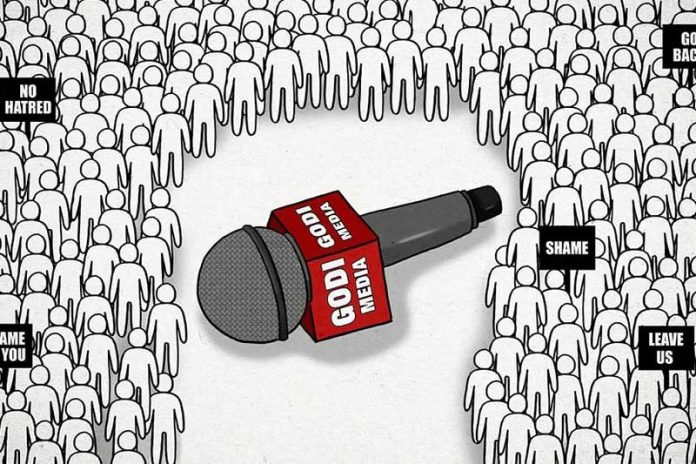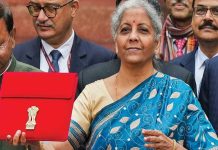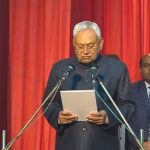The media, frequently referred to as the fourth pillar of democracy, plays an important role in shaping public opinion and holding those in power accountable; nevertheless, in recent years, questions have been raised regarding the impartiality and integrity of India’s leading news platforms. This article dives into the BJP’s purposeful influence on these channels, the role of media anchors as BJP spokespersons, and the emergence of what has been labelled “GODI media,” which debates irrelevant themes while ignoring the real concerns confronting the country.
The rise of “GODI media”
Media dynamics constantly shift due to political, regulatory, and societal variables, shaping public opinion through specific events and media coverage. It is also a well-known fact that true journalists remain free of all forms of variables and perform their duties as a watchdog on government power. In recent years, a new word has evolved to describe the current scenario of some news outlets focusing on meaningless things while neglecting important issues. Dubbed “GODI media,” these outlets promote sensationalism, celebrity gossip, and irrelevant issues that serve as distractions from pressing national challenges. By concentrating over Bollywood stars and controversial reality shows, GODI media diverts attention away from pressing issues like unemployment, poverty, healthcare, and corruption. This diversion approach not only undermining the media’s duty in informing the public, but it also encouraging a culture of superficiality and ignorance. It is depressing to see the vast potential of the media squandered in favor of constant sensationalism.
BJP’s control over news channels
Political parties are known for attempting to influence the media in order to obtain public support and build narratives in their favor, but the BJP has gone too far in this approach. The BJP, which is now in power in India, has exerted control over the country’s leading news networks using a variety of measures, including board appointments, funding, and pressure techniques, to guarantee that these outlets support the BJP agenda. The BJP administration has harassed many journalists, activists, and critics through investigations, charges of financial irregularities, and the utilization of the Foreign Contribution Regulation Act, which governs foreign funding of nonprofit groups. For example, in February of last year, Indian tax officials raided BBC offices in New Delhi and Mumbai in apparent retaliation for a series that exposed Prime Minister Modi’s a failure to protect Muslims in 2002 riots. In addition, the Indian government stopped the BBC documentary citing emergency powers under the country’s Information Technology Rules. Because of these threats and the breakdown of journalism, journalists are voluntarily self-censoring anti-BJP statements to avoid reaction, weakening the media’s function as a watchdog over government power.
Media Anchors as BJP Spokespersons
In India, several media anchors act more like ruling party spokespersons than unbiased journalists, actively campaigning for BJP policies and assaulting opponents, blurring the boundary between reporting and propaganda. One popular method used by these anchors is to invite exclusively pro-BJP speakers to debates and panel discussions, resulting in an echo chamber that suppresses diverse viewpoints. This results in the exclusion of opposing viewpoints, restricting the public’s exposure to critical analysis and constructive debate. Most of the time, it becomes difficult to identify the BJP spokesman because the BJP spokesperson remains silent when the opposition speaker makes a fair case and the news anchor defends the individuals and starts yelling at the other person. A big aspect of the discussion concerns the behavior of certain media anchors who are replicating the BJP’s narrative by prioritizing government support over honestly delivering news to the public. By serving as mouthpieces for the ruling party, these anchors compromising the media’s vital function as a fair and balanced forum for public debate. This has also highlighted concerns about the deterioration of journalistic standards, as well as the potential influence on the nation’s democratic structure.
GODI Media and Diverting Attention
GODI media outlets operate within the government’s purview, promoting sensationalism and small discussions above real matters. These media outlets are diverting public attention away from crucial issues by focusing on sensational and frequently needless themes, thereby contributing to the creation of a narrative that favors the government’s goal while ignoring critical national challenges. Some of India’s top news outlets have taken a pro-BJP attitude, jeopardized journalistic integrity and impartiality and transformed into a weapon for political propaganda rather than independent watchdogs holding the government accountable. These top news outlets and their so-called anchors openly advocate for the BJP in their debates and on social media platforms, questioning only the opposition with false narrative. This government’s dominance over media institutions, as well as efforts to silence dissenting voices, also have damaged the media’s democratic role.
Sensationalism and Bias in Reporting
Last year, top Indian news channels reported on the love story of Seema Haider, an immigrant from Pakistan, and Indian boy Sachin. On the other hand, Olympic medal-winning women wrestlers protested against a BJP MP for sexual harassment committed against them, and while fighting for justice, women wrestlers, including Olympic medalists, were forcibly detained by security forces. Recently, some of them with outstanding potential declared their retirement at such a young age owing to this issue, but no news anchor, including females, dared to support them. There was also a huge issue of rioting caused by ethnic conflict in the state of Manipur. After unrest began in May in Manipur state, over 200 people were killed, tens of thousands were displaced, hundreds of homes were destroyed, and the internet was down for months. The visuals of these riots were so disturbing that all Indians’ eyes welled up with tears after some inappropriate videos of women being lynched surfaced online, but no news channels or anchor dared to discuss the issue because Manipur is ruled by the BJP and thus everything is good there. This is the point where the top Indian media houses have dropped. In today’s India, top media outlets favor sensationalism over responsible journalism, distorting facts, misleading the public, and contributing to a lack of objectivity. This top anchor’s biased reporting, which favors the BJP party and its ideas, also undermines media credibility and erodes public trust.
Lack of Accountability and Regulatory Challenges
The media is frequently regarded as the fourth pillar, acting as a monitor for the executive, legislature, and judiciary while also informing the people truthfully. However, the Indian media lacks accountability systems, as incidents of false reporting, defamation, and other ethical violations have established new criteria for being a successful news anchor. When something tragic occurs in India, news sources investigate to determine if there is a religious component to the incident. If not, they check to discover if the state has a government other than the BJP. If the answer is yes, they will debate the subject; otherwise, they will keep their mouths sealed whether it is an atrocity against a minority, a rape of a minor girl, or the death of hundreds of people in a BJP-led state. This approach can also jeopardize journalistic integrity, leading to the spread of misinformation and issues about the channel’s reliability.
Corporate Influence and Paid News
Concerns have recently been raised related to corporate influence on media groups. One such example is the controversial purchase of a major news channel by a billionaire with a close connection to the BJP. Have you ever seen a news story about what was in the Hindenburg report? Instead of addressing and discussing how a small number of businessmen control India’s economy, media outlets and their prejudiced anchors defended their masters. Corporate ownership may result in a preference of profit over journalistic ethics, potentially influencing the coverage of specific subjects. The news channel acquired by businessmen was one that dared to carry news without bias, but as a result of corporate ownership, this channel is now a censored news outlet that only runs news in favor of its owners. This influence of corporate can also lead to self-censorship, in which media outlets withhold negative reporting on corporations or industries in order to maintain advertising revenue. It is important to understand that such control also undermines the media’s position as a watchdog and limits its ability to deliver objective coverage.
Journalism: For the better India
As there has been increasing concern that certain media anchors are acting more like spokespersons for the ruling party, the apparent link between certain news channels and the ruling party has raised doubts about the condition of journalism in India. When media outlets are perceived to be aligned with a specific political ideology, their ability to act as unbiased informers becomes compromised, limiting the public’s right to receive fair and objective news. As India is dealing with complex issues, it is critical for media outlets to uphold journalistic principles, ensuring that the public receives accurate and unbiased information to make informed decisions.
It is important to highlight that not all media institutions in India engage in corrupt practices, and many journalists have maintained high levels of journalistic integrity. Balancing the interaction between politics and media is critical for the health of India’s democracy, since an informed population is necessary for the country’s advancement. These journalists and media outlets with high levels of journalistic integrity represent hope for democracy in India as they function as the people’s voice, hold power accountable, and highlight the country’s most serious challenges.










